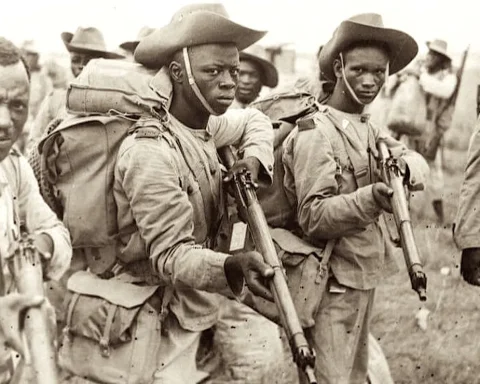
The institution commissioned a study which revealed that it benefited “significantly” from slavery.
The University of Cambridge in the United Kingdom announced on Thursday that it has benefitted from the revenues of slavery throughout its history and will boost scholarships for Black students and finance further study into the horrific trade.
The recognition comes as several important organizations — from the Bank of England to the Church of England — re-examine the fundamental role that slavery played in developing Britain and how they benefitted from its abuses.
Cambridge stated that an examination found no evidence that the institution had ever directly held slaves or plantations. However, the research revealed that slavery provided it with “substantial benefits.”
According to the investigation’s report, those came from university donors who got their money through the slave trade, the institution’s interests in enterprises that engaged in it, and fees from plantation-owning families.
Fellows from Cambridge colleges were engaged with the East India Company. At the same time, investors in the Royal African Company also had ties to Cambridge – two firms involved in the slave trade.
According to the report, which a group wrote of Cambridge researchers, the university also received gifts from investors in both firms and actively invested in another corporation involved in the slave trade, the South Sea Company.
According to the Legacies of Enslavement study, “such financial engagement both served to expedite the slave trade and gave considerable financial rewards to Cambridge.”
It also stated that while renowned abolitionists like William Wilberforce were educated and established their campaigns at Cambridge, their whole legacy needed to be investigated further. At the same time, major members of the institution defended the philosophical underpinnings of the slave trade.
Historic Wrongs
According to the study, some persons are commemorated at the institution without mentioning their role.
A plaque honouring William Pitt the Younger, a member of parliament for the university who served as prime minister at the end of the 18th century, bears no mention of his efforts to halt abolitionism or reinstate slavery in Haiti following the revolution there.
Meanwhile, the Fitzwilliam Museum was established with funds and artwork inherited from a South Sea Company governor.
In response to the report, the university announced that the museum would hold an exhibition on slavery and power in 2023, while Cambridge’s Museum of Archaeology and Anthropology suggested that its Benin Bronzes, which were taken during a violent military campaign in the nineteenth century from a territory that later became part of modern-day Nigeria, be returned.
Last year, Aberdeen University in Scotland and one of Cambridge’s colleges returned another Benin Bronze.
Other British institutions are likewise reviewing their holdings. In August, the Bank of England said it would remove artwork representing prior governors with ties to slavery.
Cambridge will also establish a dedicated centre to study the legacy of slavery, strengthen relations with Caribbean and African universities, and enhance postgraduate scholarships for Black British students and those from Africa and the Caribbean, according to the university.
It is based on a scholarship established by rapper Stormzy, who said in 2018 that he would pay spots for Black British students in response to accusations that the institution did not do enough to assure diversity.
The university also announced that it had received a contribution to hire a Black British artist to create a memorial honouring Black Cambridge professors and that it will add explanatory inscriptions to contextualize previous sculptures of persons connected with the slave trade.
“It is not in our gift to right historical wrongs, but we can begin by acknowledging them,” Vice-Chancellor Stephen Toope said in response to the report.
“Having unearthed our university’s links to an appalling history of abuse, the report encourages us to work even harder to address current inequalities — particularly those related to the experiences of Black communities.”









